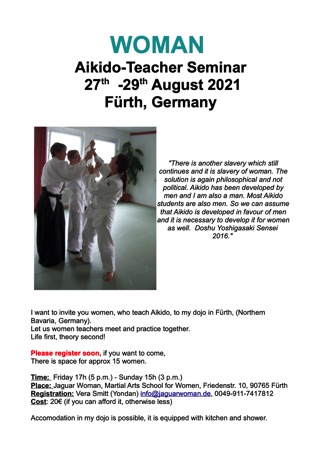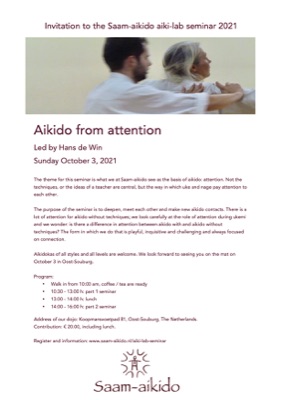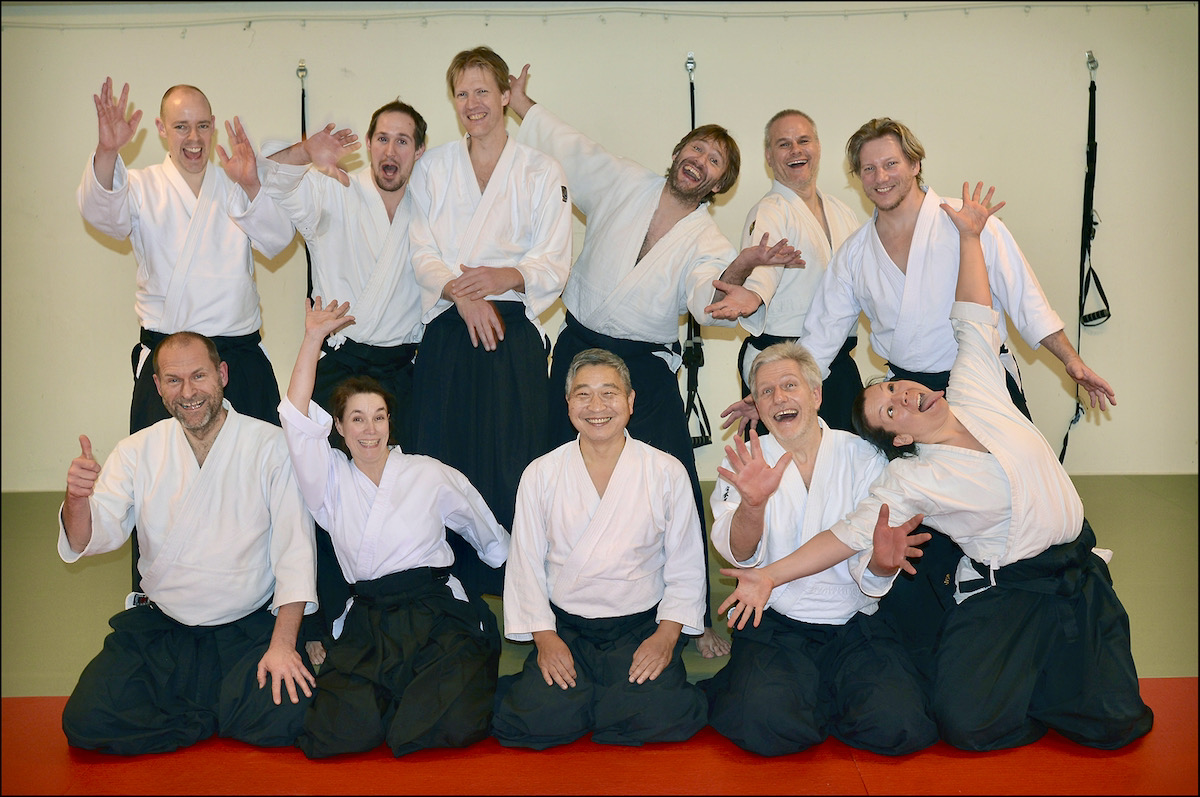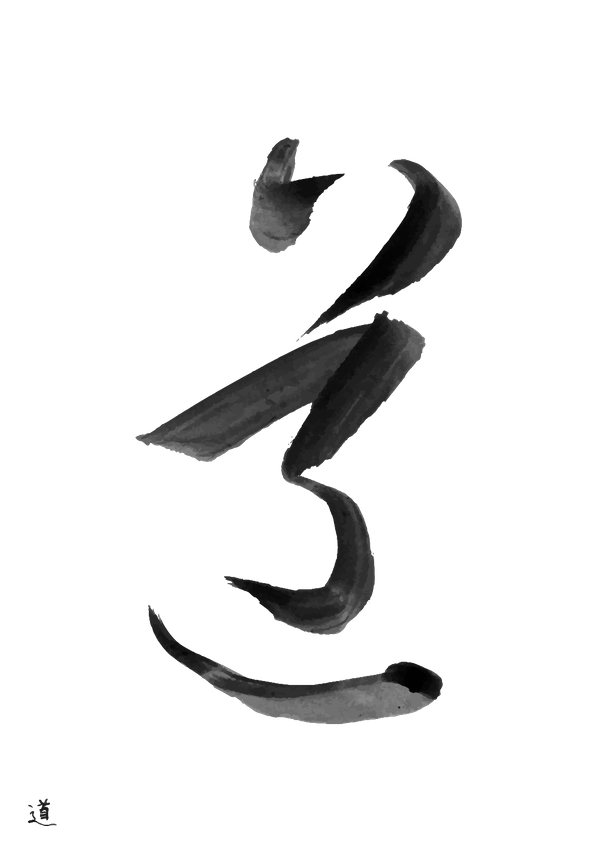Ki News #5
| Newsletter | July 2021|
________________________________________________________________
Ki News #5 - July 2021
Ki News is a newsletter for all Aikido students of Ki no Kenkyukai International.
If you want to receive a mail when it is published or if you want to contribute to the Ki News, contact via mail, ki-newsletter@toitsu.dk
________________________________________________________________
Remembering Yoshigasaki Sensei
Report of the Ki-Aikido seminar in Novara
Behind the scenes on All of Aikido
________________________________________________________________
________________________________________________________________
Editors notes
Dear all Aikido people
Hope everyone is enjoying the summer and maybe also getting back in dojo?!
This is the longest Ki News until now.
Jan Baars of Ki-Aikido Haarlem wrote a very personal and beautiful memory about Doshu, now it is translated and you can read the whole text below.
I think many will recognise many of the stories Jan are telling in one form or another.
Then there are interview with Pedro Provedo, that practice even he has a special physical condition!
As the seminars are starting again, this newsletter also have a report from aikido seminar in Novara!
Alain de Halleux started going through all his footage of Sensei, and slowly we will get new videos. In this newsletter you can see two of them.
One of them is from Nederlands in 1997 or 1998 - "what is peace?"
The other is a "behind the scenes" of the "All of Aikido" recording!
________________________________________________________________
________________________________________________________________
News from KnKi
Ki no Kenkyukai International is an umbrella association for all dojos that want to be part of this community.
KnKi want to be in involved and help create a strong community that will continue the path of Aikido.
The board of KnKi want to share some of the things they are working on.
One of them is collecting information from all the teachers who have been taking examinations. When this is finished, the KnKi will facilitate a meeting with all of them, to discuss what should be the future guidelines for examiners.
Also KnKi is organising a meeting in Furusato. This is to make a work plan for the coming years, so Furusato can continue to be a place where we can meet for Aikido and Misogi.
The webteam has had their first meeting, but please have patience, it takes time, until then check seminars at the page here and on Helmut site.
________________________________________________________________
Articles
________________________________________________________________
Remembering Yoshigasaki Sensei
By Jan Baars
Instructor Ki Aikido Haarlem
Yoshigasaki Sensei died unexpectedly in February 2021, after having taught and developed Ki Aikido in Europe for almost fifty years. Since 1988 he has been my teacher and I was privileged to attend numerous fascinating seminars. In gratitude and with a deep feeling of loss I remember not only the lessons but also the many conversations we had over the years. The profoundness of his teachings deserves to be remembered, in an attempt to honor and capture at least something of his inspiring presence.
How to remember this brilliant and complex teacher and give tribute to his innovative work? A way to start is to begin with personal experience. The appeal of his teachings had much to do with my previous biography. There have been two things or, rather, practices where my immediate response after a first encounter was that I just wanted to make this a part of my life. The first was judo, which I began to practice as a young boy and continued to practice throughout my teenage years. There was no aikido in sight at the time. The second was philosophy which caught me after entering university. After my relatively short but intense judo career I practiced for many years disciplines with a spiritual background such as tai chi, zen meditation, dance, yoga, even Aikikai aikido but these activities and philosophy remained two separate domains. When meeting Yoshigasaki in 1988 I discovered that he began to speak more and more about the same problems and issues that had occupied me in my philosophy studies. But in a new and constantly changing way.
Over these years, especially during the 1990s, we have exchanged long and detailed emails about such diverse topics as empire, democracy, time, recent political events, or philosophical subjects such as ‘language’, ‘concepts’ and ‘names’. During practically all seminars we had shorter or longer conversations about something he had brought up in class; the last was in February 2020 about the idea of history in ‘Lola Rennt’, Tarantino, Kurosawa and Nietzsche. I never expected this to be the last conversation, but this is typical for last encounters. What was especially surprising and fascinating in these encounters that he would always try to pose questions that no one would ask, because what’s the use of questions that everybody asks?
Sensei was always working hard to develop aikido further. It would be good to put this in a perspective in which we can appreciate the amazing steps he has taken along his path, so that we don't take his results for granted. What would need to be discussed are, for instance, the change from taigi to tsuzuki waza; the gradual development of the tsuzuki waza's as a whole and the lessons that are hidden in the construction of the tsuzukiwaza’s. Or the changes from kote gaeshi to kote oroshi and from tenkan to tenshin. This would help younger generations of students and teachers to develop a deeper understanding of the present state of aikido as answers to certain problems. What I want to honor here is his development of the theory of aikido as a ‘do’, a way of life, beyond what he had learned from Tohei Sensei. This profound development began – as far as I witnessed this - in the 1990s with his questioning of Tohei’s ‘Four basic principles’. Yoshigasaki Sensei began to doubt Tohei’s pretention to be able to give an absolutely right foundation to aikido. In the same way, he doubted the quasi-scientific approaches to aikido that had been developed for instance in the well-known book of Westbrook and Ratti ‘Aikido and the Dynamic Sphere’. These doubts and criticisms about rigid foundations or scientific approaches to life led to his further development of ‘Life theory versus material theory’, and, later ‘Line mathematics versus point mathematics’.
Being very interested in science and mathematics, Sensei’s critique did not diminish his appreciation of science as an eminent way to understand materials. But he criticized what we can call ‘scientism’: the idea that scientific methods are the only reliable way to understand the world and ourselves in it. He often contrasted two ways of understanding reality. Science teaches us that the moon and the stars are x number of kilometers or light years away from us but this does not capture what the moon and the stars mean to us. Therefore, he often said; ‘You have to discover the moon’. He warned to see nature only through the eyes of science: ‘There are no straight lines in nature’; to explain this he would often point to straight lines of the building in which we were practicing and to the absence of straight lines in our bodies and movements. Or he would say that there are no circles in nature: circles are scientific constructs that must not be projected onto nature. So, the idea that some techniques would be circular is a misleading idea. Similarly, turning your body backwards does not mean that you turn 180 degrees.
Measurements work only to understand materials but not with life in the broad sense and, therefore, also not for aikido. ‘Ma ai’ is not a measured distance but a harmony of the space between us that must be experienced in its (in)adequacy: as too close or too far and in changing situations. The distance between Nage and Uke in formal greeting is not 4 meters, but four tatami’s and each tatami represents three steps. Counting during exercises should not follow the rhythm of a metronome but should follow the different rhythms of the movements. Consequently, he also opposed Tohei’s suggestion to measuring the duration of a correct ‘taigi’ in seconds.
Similarly, Yoshigasaki Sensei emphasized that there is a fundamental difference between words and concepts on one side and whatever these concepts or words are about, on the other side. Words and concepts only refer to the world; moreover, mostly in the form of classifications: we speak about ‘apples’ but this apple is different from that apple. Words can help in a first orientation but should not interfere with, or even come instead of our subjective exploration of the world. Hence his many questions: ‘What is green?’ and his answer that there are many forms of ‘green’ – ‘Look at the tatami’s’ - that you should explore by yourself. A favorite topic was also ‘democracy’, questioning he self-righteousness of rich countries to invade poorer countries because they would bring ‘regime change’ from a superior position of being ‘democratic’ countries. Another one was his criticism of the ‘self evident’ opposition ‘democracy’ or ‘dictatorship’. Behind his often provocative remarks while teaching, to get people to think about certain subjects, he thought in a more nuanced way: he would criticize democracy for its rule that the majority should win, but would agree with democratic respect for minorities.
The fundamental point he was making is that what matters most in life, such as harmony, beauty, truth, love and justice, can only really exist for those who sincerely try to engage with them; there is no objective ground for any of this. Even our planet hangs in relations of gravity. The decisive moment is the acknowledgement that we are involved: we are all tiny and insignificant but at the same time, each of us is a center of the universe. Therefore, he also criticized monotheism; not because it would be wrong when someone would believe in his or her God, but because monotheist religions declare from the beginning that there is only one God. This means that belief in other Gods would per definition be superstition, which damages the respect for other religions and for the spiritual or religious experiences of other people. He concluded that the relational qualities of spirituality and the respect for other’s sincere experiences would be better preserved in polytheism, which is open to the idea that your God may be different from what I experience as God or Gods, but this does not include a depreciation of your spiritual experience.
Although the task to discover the meanings of love, justice, a tree, this particular butterfly or this particular technique or situation in aikido is very personal, it is not an isolated process. It is also deeply relational. This does not mean that I should agree with others or follow somebody else. Experience and understanding will differ between people, leading possibly to different kinds of tensions between people. The eminent role of aikido is that it teaches not only ways to protect yourself from danger but also to guard your own physical and mental space while remaining in relation with others. Existing in relations with others means that we are involved in them so that we cannot understand them from a distance of objectivity.
Where objectivity and the distanced observation end, subjectivity has to begin, from the beginner’s mind or Shoshin. But this is not the subjectivity of countless unconnected opinions or ‘points of view’. But a subjectivity that grounds in an awareness that we exist in relations and that these relations are changing. Therefore, Yoshigasaki Sensei was always changing the techniques and the ways of explaining them so that we would not satisfy ourselves with the lazy conviction that we have found and mastered the right technique. All techniques are merely didactic forms to practice this changing nature of aikido, which reflects and is part of the changing nature of life. He often emphasized that he only showed wrong techniques but not with the intention of indifference, but as specific experiential examples of different possibilities that cannot all be anticipated.
The interplay of engagement and distance is connected with Yoshigasaki’s central teachings of love and respect. He approached Aikido as a ‘do’ – a way of life in an everyday practical reality outside of the dojo. Aikido techniques were often interpreted as metaphors of life and life’s situations as metaphors of the ‘do’ of aikido. His ideas of harmony, love and respect had, however, a critical edge that would cut through un-reflected, badly reflected or worse, intentionally misleading ideological constructs of governments. Or he would point to everyday problems of injustice, for instance for refugees, that we tend not to see because we take our comfortable way of life for granted. Harmony is not a plaster that can be placed over a wound so that we are no longer disturbed by it. Harmony, justice, truth, beauty are not given in an unchanging form but must be regained again and again.
As his impressive presence has become the presence of his absence we can honor his legacy, not by merely reproducing it – although much needs to be digested well – but by developing it with the questions that emerge from our practice if we are open to see them.
________________________________________________________________
________________________________________________________________
Interview with Pedro Provedo
By Josep M. Ramón,
Ki no Kenkyukai Valencia
Sometimes, when you have been an aikido instructor for many years and some people have come to tell you that they could not continue for one problem or another (some of them really reasonable) you simply perceive that it is an excuse and there is an absolute lack of will.
There are moments along the way when you also realise that you were right: will, yes it was that. One of those moments I bring here as an example, a great example that if you want it, you can do it.
I met Pedro a few years ago and even today I still see him with that inner strength to practice Aikido even with all his limitations.
He is not the only one I have met with physical limitations but today I think it is appropriate that the good example he gives to all of us should be known.
Q: Hello Pedro, can you introduce yourself, tell us your personal details and physical condition?
A: I am Pedro Provedo. Date of birth 16 February 1967. I am now 54 years old.
At the age of 16 I had a stroke (an injury in the head). It left my right side immobile (I still have spasms and will have them for the rest of my life) and I even lost my speech.
At the age of 45 I was diagnosed with overactive bladder. They are giving me Botox where the spasms are. Botox is a muscle relaxant.
When I'm stretched out in bed, a twitch runs through my body. (They are not spasms). There is a part of me that wants to do it and another part, not knowing the limits or the added difficulties, prevents me from acting.
Q: How long have you been practicing aikido? How did you get to know aikido and what has the practice of aikido meant to you in this time?
A: At the age of 51 (in February 2017), I met Javier Sobrino at the ¨Telefono de la Esperanza* in Pamplona and the Aikido he practised. I continued with Iñaki Munarriz when Javier went to Valencia, and I practised all the richness of Aikido, which is a martial art of defence.
Q: What do you look for in aikido?
A: Discipline and camaraderie.
Q: How is your relationship with your classmates and your instructor in the dojo?
A: It has helped me to improve physically and to achieve greater self-esteem.
My classmates are good and genuine people. My teachers: They adapted to me and I adapted to them. A year ago, in times of pandemic, the practice was limited.
Q: I know that you have also done seminars with Yoshigasaki sensei, what is your experience and what did you think?
A: Twice I was in Valencia at Javier Sobrino's house, in the capacity of Yoshigasaki Sensei's seminar. Very good seminar and very good company; on Saturday we all went to dinner together.
Q: Have you set yourself a "objective" in aikido?
A: I have not set myself.
Q: How do your family and friends feel about you doing aikido?
A: I tell them how Aikido is going: Kenkodo, relaxation, Jo and Boken tsuzukiwaza, misogi... and to my friends, yes, I explain the Aikido plan for my life.
Q: Do you bring aikido into your daily life and is it of practical use to you?
A: Example: this weekend I went camping in Artaza, a village in Navarra with 40 people from different walks of life, and they all helped me.
It was a meeting place to do Yoga: where we ate, washed the dishes, took showers and made fireplace etc.... in many things I had to ask for help. Aikido helps me to overcome these situations, feeling integrated.
Thank you for this interview, Josep.
________________________________________________________________
* The "Teléfono de la Esperanza" (Telephone of Hope) is a non-profit non-governmental organisation (NGO) for voluntary work, social action and cooperation for development, which offers a comprehensive and free support service to people in crisis situations. It also promotes numerous programmes to improve the emotional health of individuals, families and society as a whole.
________________________________________________________________
________________________________________________________________
Report of the Ki-Aikido seminar in Novara.
By Francesco Ingemi
Dojo Vercelli
Sunday 20 June was held in Novara the first aikido seminar after the restrictions for the containment of the pandemic in recent months. It was organized by the associations UNIKA and Ki-Aikido Kai.
The stage was attended by over fifty practitioners from more than ten different dojos located in Piedmont and Lombardy. These dojos that have been collaborating for years in the diffusion and development of Aikido as one group.
Also, some practitioners from Switzerland of the Balerna Dojo also participated, with their chief instructor.
The seminar was held by Maurizio Volpe, Shihan of Ki no Kenkyukai international; cause the anti-covid regulations, the practice took place in a tent structure open on the sides.
Volpe Sensei began the lesson by talking about the concepts of coordination between mind and body, deepening them with the application of Ki tests, and then move on to the practice of weapons.
In particular, we practiced the basic movements with the bokken and then moved on to the tsuzukiwaza of happo giri (27 ° tw).
The last part of the lesson concerned the 2nd kata of jo vs bokken (26th tw).
During the final part of the seminar all people welcome the visit of Gianni Gioconto Shihan, unfortunately unable to teach for health reasons; he received from all the practitioners their esteem and their affection.
The meeting was also an opportunity for the Masters Maurizio and Gianni, after all these months of closure, of conducting the "dan" graduation ceremony to the practitioners that gave the examinations with the Doshu in the last seminars he held.
After the lessons, in keeping with good tradition, almost all the practitioners took part in the social lunch organized for the occasion in the nearby restaurant.
________________________________________________________________
Behind the scenes on All of Aikido
Filmed by Alain De Halleux.
Between 1999 and 2001, Yoshigasaki Sensei produced and directed 5 videos about Aikido.
Here the making of one day of shooting
The videos where made at the La Bellone, house of performing arts in Bruxelles, Belgium.
Besides the people taking ukemi, Denise Commandeur, Toby Voogels & Ad Voogels, you also see Marie-Rose Meysman and cameraman Olivier Pullincks.
See all the videos at https://vimeo.com/showcase/3716176
What is peace?
In 1997 or 1998 at Aikido seminar in S'Hertogenbosch, Netherlands, Sensei spoke about Peace.
Must people say peace is absence of war. But in fact, it is an action for harmony...
So what is harmony...
Seminars
________________________________________________________________
Ki-Aikido seminar with Rainer Varis
July 16.-18. 2021.
Rainer Varis' 50th anniversary aikido seminar in Ähtäri, Finland,
Contact: Esa Lilja
tel. +47 482 16 493
Current travel restrictions to Finland:
________________________________________________________________
Aikido in Helsinki with Michael
July 19.
________________________________________________________________
Seminar with Bruno Maule in Crissolo
July 31 – August 11, 2021
Aikido at high altitude (1400 meters above sea level) between the peaks of the Alps at the foot of Mount Monviso,long walks surrounded by nature, clean air and homemade food.
Seminar aimed at training for students, instructors and teachers directed by Sensei Bruno Maule
Links to posters (in English):
________________________________________________________________
Woman Aikido teacher seminar
August 27-29, 2021.
Invitation to all women, who teaches Aikido, to Jaguar Woman dojo in Fürth, (Northern Bavaria, Germany).
More info:
________________________________________________________________
Aikido in Madrid with Michael
September 24.-26 2021.
Poster will come later.
More info:
Carlos Gonzalez Vera
________________________________________________________________
Aikido from attention, Hans de Win
October 3, 2021.
More info:
http://saam-aikido.nl/aiki-lab-seminar/
________________________________________________________________
Aikido on Velebit mountain
July 30 - August 1, 2021.
Dear all, you are invited to the summer aikido seminar on Velebit mountain,
The plan is to do bokken, jo & misogi outside, in nature, in beautiful forest locations. The seminar host: Marijan Kudrna, 4th Dan, Aikido Society Zagreb.
Hiking on Velebit and swimming in the Adriatic sea (Karlobag that is 20 minutes away by car) is understandable.
For accommodation in the hostel please contact Marijan directly: manjoster@gmail.com, +385914900008.
Camp is not available, but it's possible to place your tent in the yard of Marijan's mountain house. Meals will be organised in the hostel.
Please contact us for all inquiries, info is also on our website: www.aikidozg.com.
Facebook event,Summer Aikido Seminar on Velebit Mountain:
https://www.facebook.com/events/323327765943993/
________________________________________________________________
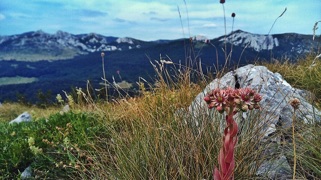
Online Aikido
________________________________________________________________
Online or in Dojo?
Some dojos now stopped doing Aikido online as it many places now is possible to practice in Dojo again!
Please go to page for online Aikido this will also be updated between newsletters - online Aikido...
________________________________________________________________
Memories
________________________________________________________________
Danes in Sweden
In 2014 some Danes invaded Västerås in Sweden. I love this picture because it shows the childlike and humorous side of Sensei.




